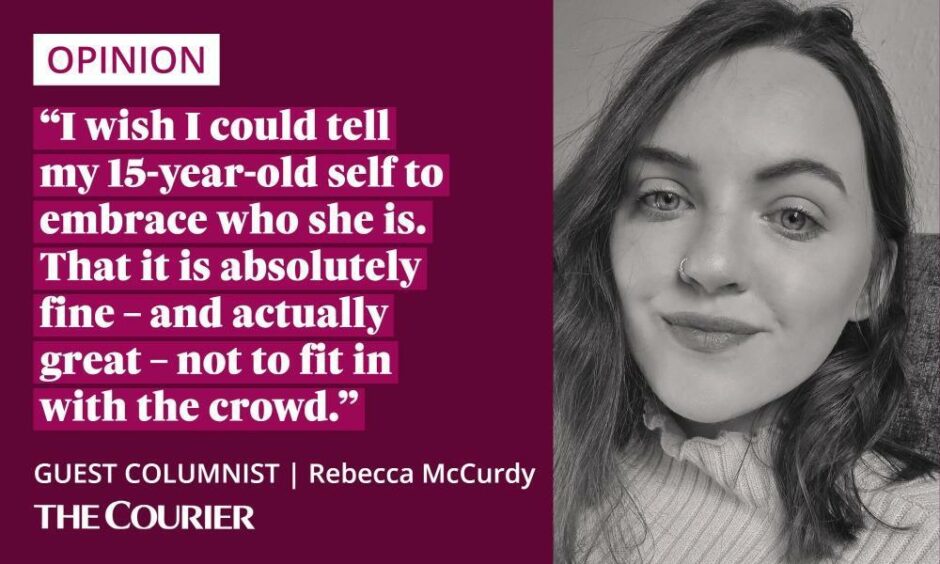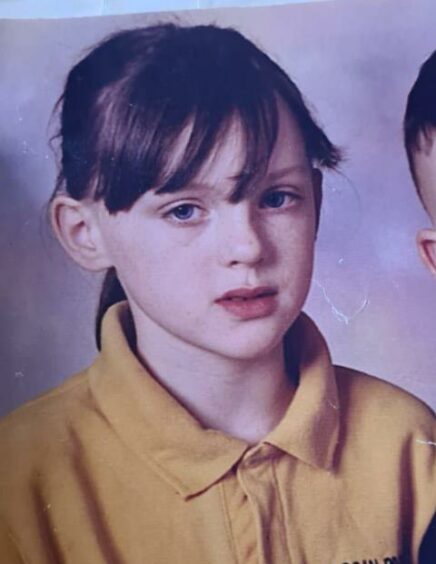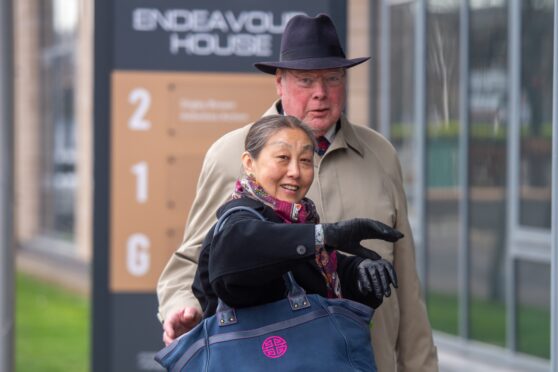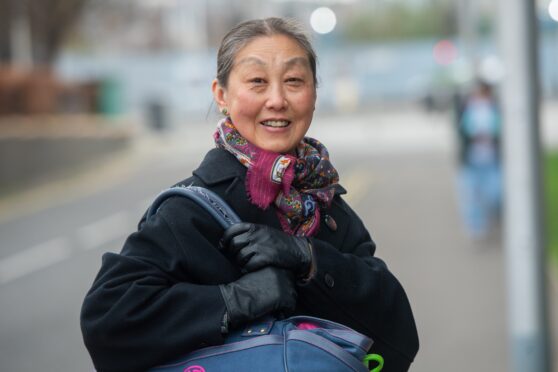I was 15 when I first sought help for depression after years of being bullied.
I’d reached the point of hopelessness – I’d stopped caring whether I lived or died.
At the same time, I was avoiding classes where my tormentors were, avoiding revision sessions that would help me do well in my prelims.
I’d have given anything to spend the rest of my school years invisible.
I just didn’t fit in, no matter what I wore, how I spoke or acted. I was either too skinny, too ugly, too quiet or too loud.
And it’s hard to have self-belief or look to the future when you feel like almost everyone is against you.
Even as I write this now, there’s anxiety at the thought of my mum having to read about the true scale of my teenage sadness.

And it would be even worse to imagine my bullies reading it, still laughing like they did all those years ago.
But it is the right time to share my story.
When I left school, I hoped real change would ensure children never felt the same way I did.
Now though, as I look back as a 26-year-old I can’t help but think back to what support I needed at 15.
Bullying series
I’ve spent the last few months talking to parents whose children are being bullied at school.
These parents felt the hopelessness my own mum felt when they can’t stop the bullies targeting their children.
And I felt the humiliation, the powerlessness, when teachers turned a blind eye to things that happened right in front of them.
It was hard not to feel like the bullies were being validated when they were able to make horrible comments right in front of teachers.
Perhaps the teachers felt just as powerless to stop it as I did?
I’d dread lunch times and classes like PE the most. Scared to eat or move too much in front of people in case they made comments about my appearance.
I don’t have, and have never had, an eating disorder but my anxiety around eating in front of people has stuck with me ever since.
Effects of bullying continued into adulthood
My response was to stay quiet, in the hope I’d pass by unnoticed.
In a sense, I’m lucky. My bullying was, for the most part, verbal and it ended almost eight years ago when I left school and moved away.
But I’ve lived with the after effect of being bullied ever since.
When you are told you’re worthless often enough, you might just start to believe it.
I’d open my mouth but the words wouldn’t come out. And when they did, I would be a mumbling, stuttering mess, afraid of saying the wrong thing or looking stupid.
And this is the biggest issue that has followed me into my adult life.
It is heart-breaking to see that there still seems to be no way to stop bullying for good.
Many adults will know of a young relative who is terrified to go to school, afraid of what might be waiting for them when they get there.
When my own nephew, then eight, started being bullied at school, it broke me to see his pain.
And yet there was nothing else we could do but hope his school had a sufficient anti-bullying policy that would work to stop it.
I’ve never felt like my own school did.
But there is hope
But there is hope.
We may never be rid of bullies, but I refuse to accept it is a normal part of life.
Learning that your voice is valuable is hard when you’ve been told it’s worthless for so long but it is how I’ve saved myself from the darkness.
My depression will always be there but it won’t ruin my life or stop me from achieving everything I’ve set out to.
I wish I could tell my 15-year-old self to embrace who she is. That it is absolutely fine – and actually great – not to fit in with the crowd.
As I’ve grown up, I’ve learned that it is these qualities that my friends have always valued in me.
I wish I could tell her where she is going to go in life. She will achieve her dreams, leave the small town and go to university.
She will follow her passion for writing and journalism.
She will make it in her dream career.
And she will do all of this while carrying the emotional scars left by bullying.
Anyone who witnesses bullying should report the incidents to a relevant authority, such as teachers, police or parents.
Scotland’s anti-bullying service RespectMe offers guidance for young people who are experiencing bullying and their parents and teachers.
If you feel like the bullying you witnessed at school or online was a hate crime, you can also report it to Police Scotland via 101.
Childline support young people with any worries they may experience, including mental health and bullying.
They can be contacted confidentially on 0800 11 11 or use their free 1-2-1 counselling service.
Read more from our bullying series
-
- ‘Mummy I just want to die’: Devastating words of Fife girl, 7, after years of bullying
- Bullying in schools: Our survey reveals 9 in 10 parents do not think schools can effectively tackle it
- Bullying advice: How to help children who are being bullied
- Types of bullying: What is classed as physical, sexual and prejudicial bullying?
- Devastating effects of bullying on children in the short and long term
- OPINION: I attempted suicide after years of bullying – schools need to take it seriously
- Autistic Angus teen terrified to go to school as pupil threatens to ‘kill him
- How to report bullying to schools and the police
- Mum says alleged assault of her 5-year-old son shows bullying happens at any age
- Race, religion and sexual orientation among main reasons for school bullying in Tayside and Fife
- Relentless bullying makes Autistic Angus teen pull her own hair out and say she wants to die
- Anti-bullying policies: Schools take restorative action to resolve bullying
- Education Secretary: School exclusions must be ‘last resort’ for dealing with bullying
- Traumatised Perthshire teen ‘hid in classrooms’ while bullies who pushed her down stairs faced ‘minimal punishment’
- Online bullying: Advice to help keep children safe on social media
- Signs a child is bullying: Here’s how to help if your child is the bully












